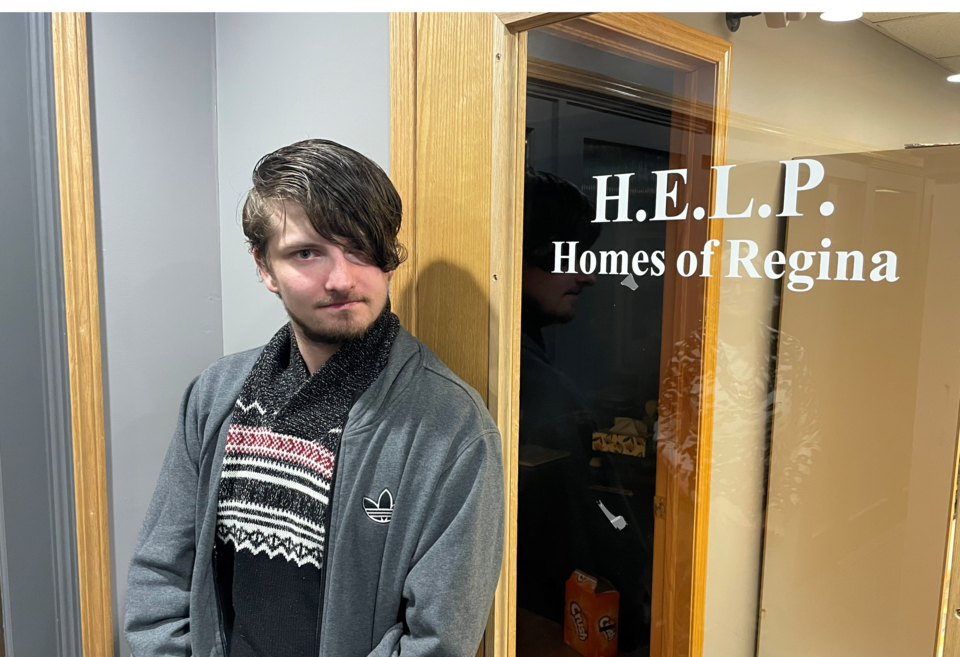REGINA - Darien Sali didn’t grow up having the easiest life, as he was raised by a single parent and went to school where he described being "bullied 24-7."
Sali, who is autistic, found it challenging learning to read and write after he was put in the Functional Integrated Academic Programs (FIAP) classes.
He found it easier for him to learn topics he was interested in rather than be taught Grade 5 education in high school.
Sali mentioned he was perfectly fine and didn’t need to be in classes with others who truly needed the help.
Because Sali never fully grasped reading and writing, his employment experiences was less than ideal.
Sali feels employers "don’t like hiring people with disabilities." When Sali tried to find new jobs, he would hide his disability because he figured employers would use that against him.
Sali added, "they [employers] want to hire people that can actually function in like actually be part of the business. They [treat] normal people better than they treat people with like disabilities."
He recalled a time when he worked at a grocery store, where he was unpaid and was told he wasn’t doing the job properly. Eventually, his employer let him go instead of trying to resolve the issue, said Sali.
Sali also spoke about his work at a harvest community, where he recalled several instances of harassment and violence in the workplace.
After the multiple job opportunities didn’t work out for him, Sali started feeling depressed and worthless.
He ended up having a lot of arguments with his family because he couldn’t bear his sadness, so eventually, Sali moved out of his home.
Trying to figure out where to go next, Sali reached out to H.E.L.P. Homes of Regina. The organization helps people with disabilities find residence, care, jobs and more.
Sali moved into the H.E.L.P. Homes BRIDGE program in 2022. He described "feeling happy when I [Sali] moved into the program." Around a year later, Sali joined the H.E.L.P. Homes Supported Living Program (SLP).
Since joining H.E.L.P. Homes, Sali feels like he's "in a way better place, living on my own." Sali can now go grocery shopping on his own and plan things better in his mind. He also feels budgeting is something he can grasp better now.
People told Sali he could never be independent, so he feels "like [I am] going against the people that said you can never do anything."
He spoke about the importance of being more independent. "Being independent thinking for yourself, it's like almost a lift off [of your shoulders from] like everything [all the stress and worry]."
Sali hopes that once he’s ready to tackle the workforce again, he can train to become a security guard.
The reason Sali wants to become a security guard is because of his grandpa. Sali looks up to his grandpa because "he practically raised me. He's the most nicest man I could ever meet, and he practically is the person I look up to, and him [telling me] like stories of being a security guard are like awesome," said Sali.
Sali also feels he can watch out for people on the streets who are overdosed or dealing with other issues by becoming a security guard.
He finds it hard to see people out in public dealing with issues because "they could do so much better with their lives like it’s crazy to me," said Sali.
Once he becomes a security guard, Sali wants to do the best job he can by serving and protecting people. Eventually, he hopes to rise up the company ladder for the corporation he would be working for.
For those with disabilities trying to find employment, Sali said, "don't let your disability define you."
He added, "follow your dream. Don't let anybody ruin that because if they ruin that, they ruin what you want to do. Just follow your dream, do what you want."
Sali hopes soon he can follow in the footsteps of his grandfather and become a security guard to define the odds stacked against him.




